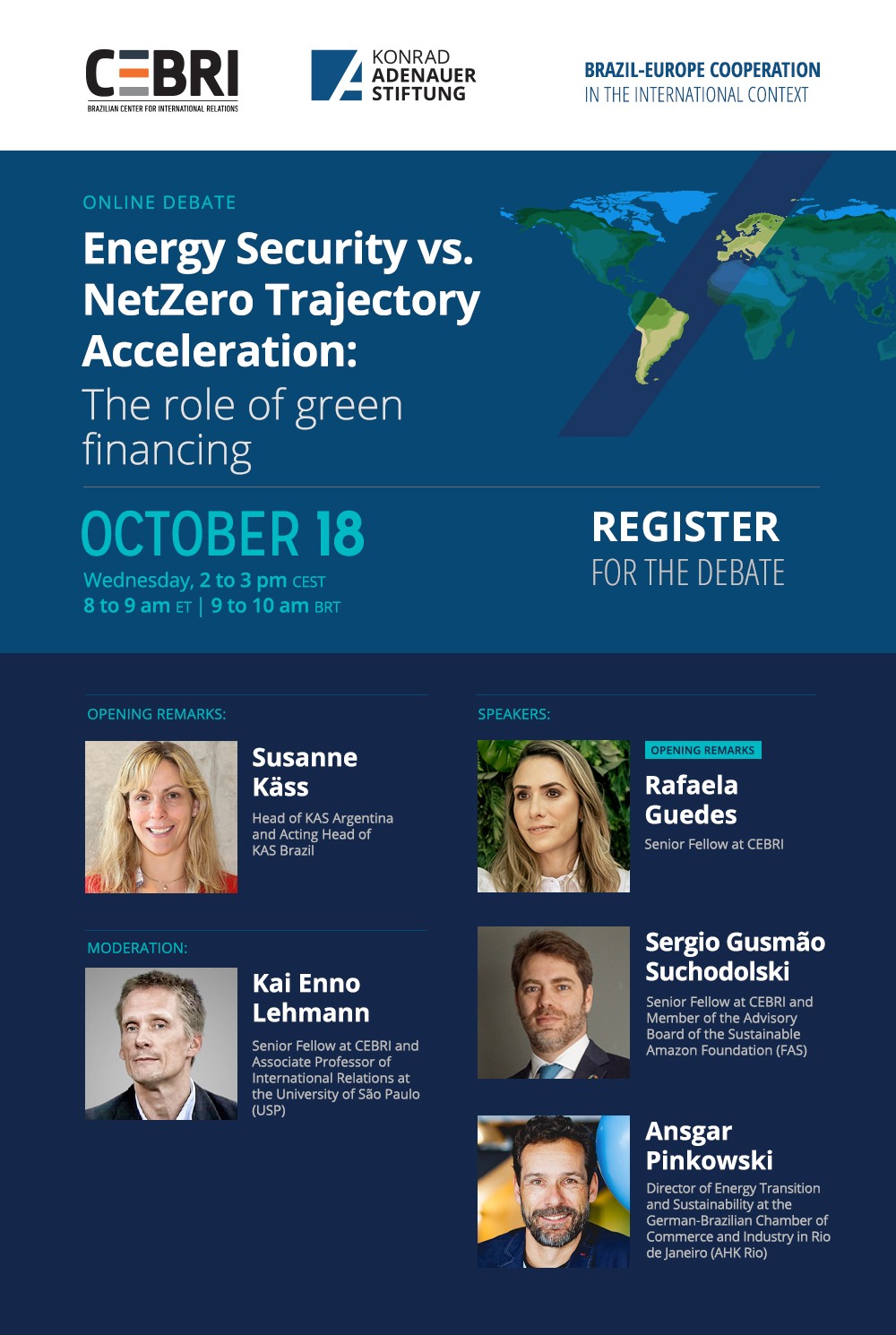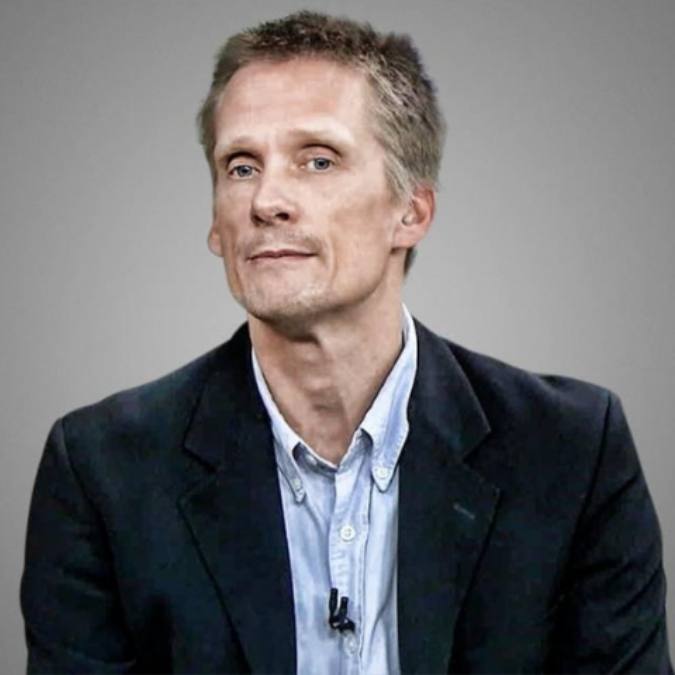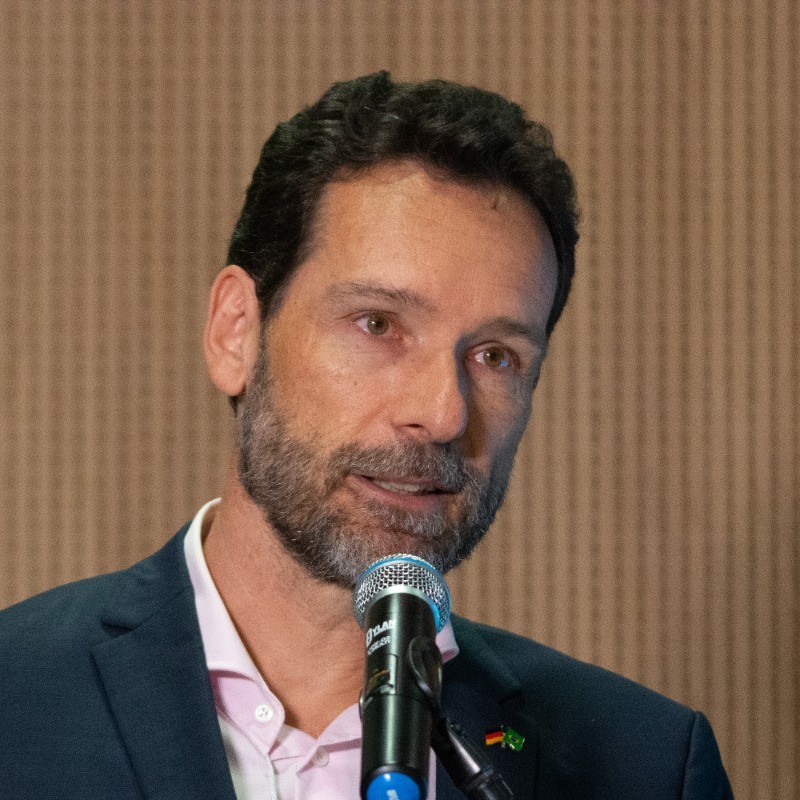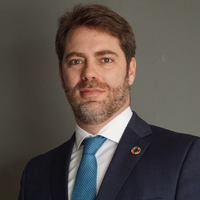Online events
Energy Security vs. NetZero Trajectory Acceleration: the role of green financing
While, on one hand, the post-Covid era enabled the reopening of countries and the reinvigoration of economies, on the other hand, Russia's invasion of Ukraine ignited an urgency for ensuring energy security, causing intense volatility in fossil fuel markets due to the competition for oil and gas supplies. The pressing need for energy security, in turn, created an adverse macroeconomic situation, imposing additional obstacles to accelerating the energy transition, as fossil fuel assets have been delivering higher short-term returns, while investments in clean energy face increasing loan costs and debt burdens. Despite this, in early 2023, the International Energy Agency estimated an investment of USD 2.8 trillion in energy for the year. They anticipate that USD 1.8 trillion will be invested in clean energy sources, surpassing the USD 1.0 trillion to be invested in fossil fuels. Thus, the agency argues that, despite the temporary heating up of the fossil fuel market, there is an acceleration in the deployment of various clean energy technologies that will facilitate a faster transition. However, in the same report, the agency emphasizes that, to meet the ambitious net-zero agenda, investments dedicated to clean energy, as well as announced green initiatives, are insufficient and, up to now, heavily concentrated in developed countries. Therefore, the crucial question that will help determine the pace of the transition, aligned with ensuring energy security, is how quickly investment in clean energy significantly increases in emerging and developing economies, where support strategies and policies will need to be accompanied by improved access to green financing.
While, on one hand, the post-Covid era enabled the reopening of countries and the reinvigoration of economies, on the other hand, Russia's invasion of Ukraine ignited an urgency for ensuring energy security, causing intense volatility in fossil fuel markets due to the competition for oil and gas supplies. The pressing need for energy security, in turn, created an adverse macroeconomic situation, imposing additional obstacles to accelerating the energy transition, as fossil fuel assets have been delivering higher short-term returns, while investments in clean energy face increasing loan costs and debt burdens. Despite this, in early 2023, the International Energy Agency estimated an investment of USD 2.8 trillion in energy for the year. They anticipate that USD 1.8 trillion will be invested in clean energy sources, surpassing the USD 1.0 trillion to be invested in fossil fuels. Thus, the agency argues that, despite the temporary heating up of the fossil fuel market, there is an acceleration in the deployment of various clean energy technologies that will facilitate a faster transition. However, in the same report, the agency emphasizes that, to meet the ambitious net-zero agenda, investments dedicated to clean energy, as well as announced green initiatives, are insufficient and, up to now, heavily concentrated in developed countries. Therefore, the crucial question that will help determine the pace of the transition, aligned with ensuring energy security, is how quickly investment in clean energy significantly increases in emerging and developing economies, where support strategies and policies will need to be accompanied by improved access to green financing.






